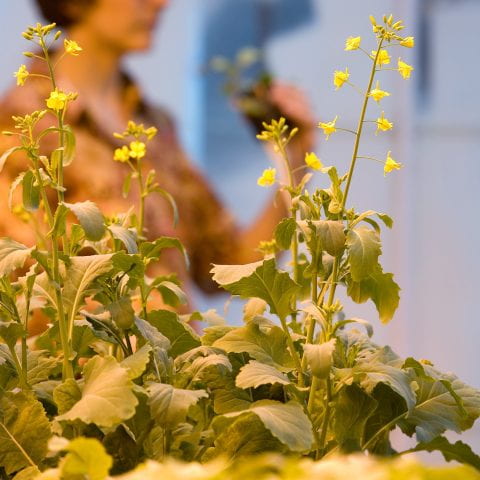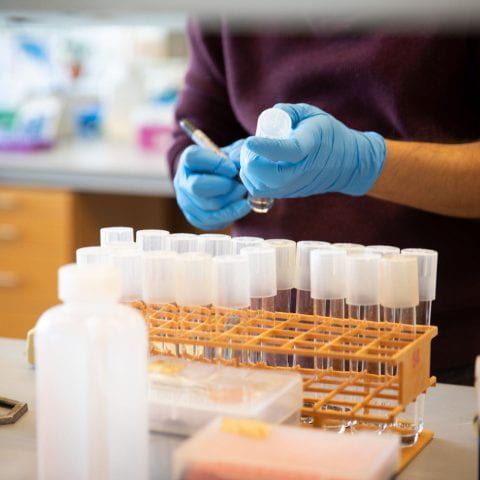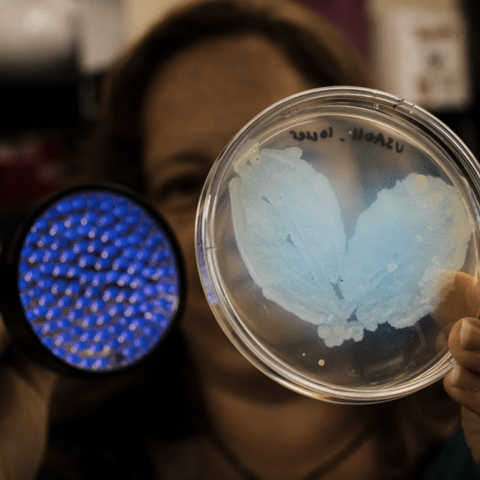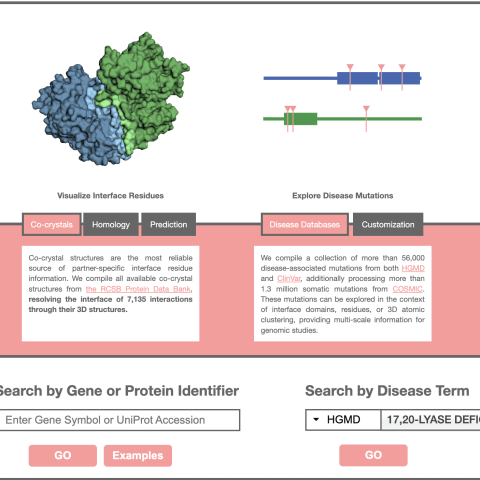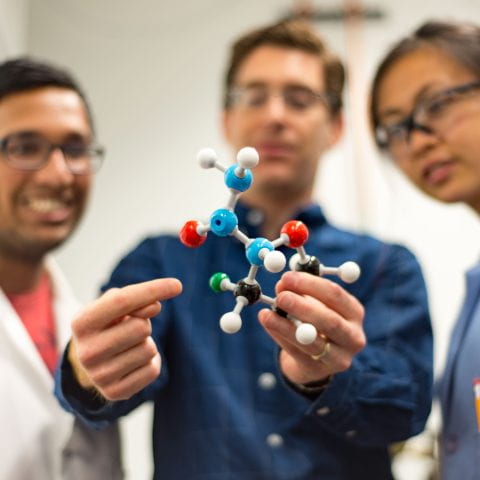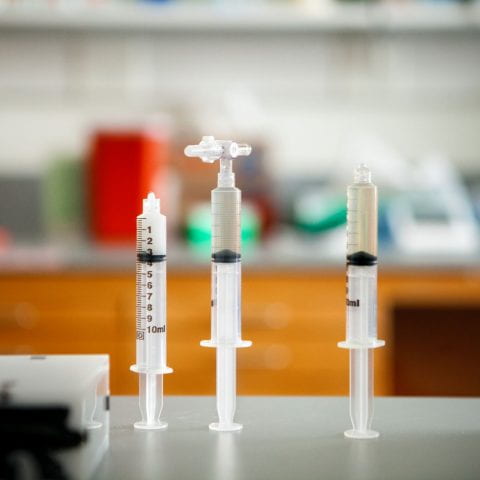Research
Weill Institute faculty member, Adrienne Roeder, is also part of the SIPS Plant Biology Section. Without plants, life on earth would cease to exist. Plants shape our environment and provide us with food, medicine, clothing, and shelter. Today we are faced with an unprecedented series of challenges — global climate change, food shortages, rapid loss of biodiversity and new and evolving diseases are threatening both the health of the planet as well as human health and well-being. Through its broad-based and innovative studies of basic plant biology, the Plant Biology section at Cornell University's School of Integrative Plant Science is positioned to contribute real and impactful solutions to these problems at local, state, national, and global scales. Visit the Plant Biology...
Weill Institute faculty members Anthony Bretscher, Marcus Smolka, Yuxin Mao, Fenghua Hu, Chun Han, Chris Fromme, and Scott Emr are all part of the Molecular Biology & Genetics Department. The Department of Molecular Biology and Genetics engages in cutting-edge research, training, and teaching to solve basic questions in the life sciences and to apply biological knowledge to critical medical, agricultural and environmental problems. Our goal is to inspire the next generation of scientists, teachers, and communicators by providing research mentorship and classroom instruction in biochemistry, bioinformatics, cell biology, genetics, and molecular biology and by initiating and participating in collaborative research across the Cornell campuses. Visit the Molecular Biology &...
Weill Institute faculty member, Tobias Dörr, is part of the Microbiology Department in CALS. Microorganisms drive the fundamental processes on which all life on Earth depends. We are born into a world dominated by microorganisms. As a consequence, we have innumerable intimate microbial associations; many enhance our lives, some are essential to our very existence, while others present us with potentially lethal challenges. Research on all aspects of microbial biology can provide a deeper understanding of basic cellular and evolutionary processes, foster sustainable and practical approaches to maintain healthy ecosystems, and inform better practices to promote plant, animal and human health. Visit the Microbiology department's...
Weill Institute faculty member, Haiyuan Yu, is part of the Computational Biology department. Broadly speaking, computational biology is the application of computer science, statistics, and mathematics to problems in biology. Computational biology spans a wide range of fields within biology, including genomics/genetics, biophysics, cell biology, biochemistry, and evolution. Likewise, it makes use of tools and techniques from many different quantitative fields, including algorithm design, machine learning, Bayesian and frequentist statistics, and statistical physics. Our major research strengths in Computational Biology are in comparative, evolutionary, and population genomics. Specific problems of interest include the detection of genomic regions underlying complex traits, the...
Weill Institute faculty member, Jeremy Baskin, is part of the Chemistry & Chemical Biology department. The Cornell Department of Chemistry and Chemical Biology has a long history of discovery, innovation and scholarship. We are fortunate to count Nobel Prize winners, National Academy Members, MacArthur Fellows and Guggenheim Fellows among our faculty. Teaching thousands of undergraduate and advanced students each year, education is a central focus of our endeavors. Our graduate students and postdoctoral fellows perform cutting-edge research that is supported by many national granting agencies and foundations. We are committed to the advancement and inclusion of all students and aim to foster a diverse environment for science and learning. Visit the Chemistry & Chemical...
Weill Institute faculty member, Jan Lammerding, is part of the Biomedical Engineering department. The Meinig School of Biomedical Engineering is building research and educational programs around a vision that a quantitative understanding of the human body can be used as a foundation for the rational design of therapies, molecules, devices, and diagnostic procedures to improve human health. Integral to the School's research effort are undergraduate and graduate students, post-doctoral researchers, technicians, clinical advisors and visiting faculty. Visit the Biomedical Engineering department's...

